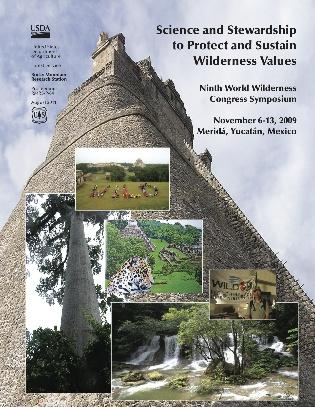Gund alumni Valerie Esposito and Gund Fellows Azur Moulaert and Roel Boumans contributed to a paper entitled "Climate Change and Ecosystem Services: The Contribution of and Impacts on Federal Public Lands in the United States," published in the proceedings of the 9th World Wilderness Congress Symposium (USDA Forest Service Proceedings RMRS-P-64. 2011).
Abstract. The Intergovernmental Panel on Climate Change (IPCC) (2007) reports a likely 2 °C to 4.5 °C temperature rise in the upcoming decades. This warming is likely to affect ecosystems and their ability to provide services that benefit human well-being. Ecosystem services valuation (ESV), meanwhile, has emerged as a way to recognize the economic value embodied in these services that is not currently reflected in markets. To contribute to better understanding of how U.S. conservation lands may be affected by climate change, we outline a method and preliminary estimates of the value of ecosystem services harbored or produced in abundance on those lands as well as how that value may change under climate change scenarios. We combine GIS analysis with the benefits transfer method to estimate potential global-warming-induced changes in the economic value of ecosystem services produced by U.S. conser- vation lands. Using conservative assumptions, the overall trend indicates that the majority of ecosystem services values decreases as temperature increases. While some ecosystem service values increase in the 2 °C scenario in several regions, the values mark- edly decrease in all but one region under the 4.5 °C scenario. These results are consistent with other major studies, such as the IPCC and the Cost of Policy Inaction reports, and indicate the important role of public conservation lands in providing ecosystem services and the need for policy action to avoid major economic losses were climate change to impair the health of those lands.
